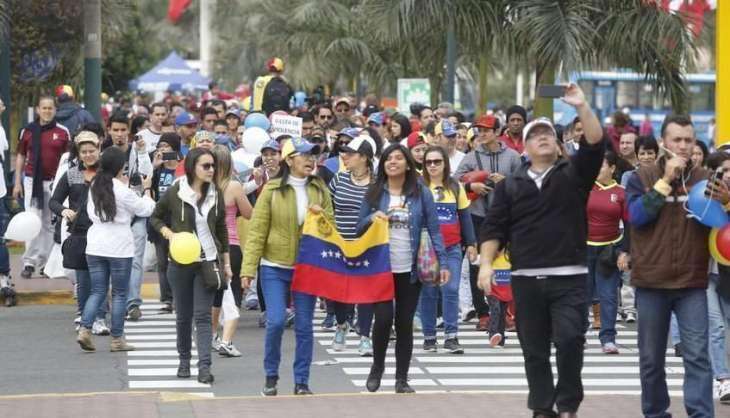Sunday in the Venezuelan capital of Caracas was marked by tranquility, with no large-scale protests having been held in the city, unlike preceding days
CARACAS (Pakistan Point News / Sputnik - 28th January, 2019) Sunday in the Venezuelan capital of Caracas was marked by tranquility, with no large-scale protests having been held in the city, unlike preceding days.
A Sputnik correspondent traveled around the city in order to see the new routine of the Venezuelan capital, engulfed in the confrontation between the country's President Nicolas Maduro and opposition-run National Assembly President Juan Guaido, who proclaimed himself the country's interim leader last week.
PETARE CLOSED FOR STRANGERS, CATIA AS WELL
Our way laid to the neighborhood of Petare, one of the most unsafe neighborhoods of Caracas.
"Let's make it this way: I will take you there now, but you will not get out of the car," the driver warned us.
We decided to follow his recommendation and did as he said. Petare's streets did not seem to be dangerous at first glance... But that impression could remain only if you did not get out of the car.
People were sitting on the benches outside houses, some of them were sipping beer, which is in general forbidden, but Petare is Petare � it has its own laws.
We also took a look at another infamous neighborhood - Catia. The environment was much more cheerful there. We immediately spotted newcomers, as they were standing and drinking on every street corner, even though it is formally forbidden.
In general, the city was calm, absolutely calm, even Petare and Catia, which are the former nests of Chavismo, the left-wing ideology of Venezuela's ex-President Hugo Chavez, were quite. But things can change literally tomorrow, if the opposition calls a rally.
Guaido stated earlier that he would announce the next manifestation at 8:00 p.m. local time on Sunday (00:00 GMT on Monday), pledging that another rally would be "convincing."
Mass protests against the country's incumbent president Maduro began in Caracas on Wednesday. On the same day, Guaido declared himself the country's interim president, with an intention to lead the transitional government until a new presidential election.
The United States and a number of other countries formally recognized Guaido as interim president and urged Maduro, whose re-election they viewed as an illegal one, to step down and let Guaido assume the presidency.
Maduro, in turn, reiterated that he was the country's constitutional president and called the opposition leader "the US puppet."
In addition, Maduro severed diplomatic relations with the United States, asking US diplomats to leave the country within 72 hours. However, US State Secretary Mike Pompeo refused to comply with the demand, claiming that Maduro did not have the authority to make such a decision.
To date, Albania, Argentina, Brazil, Canada, Chile, Colombia, Costa Rica, Georgia, Guatemala, Honduras, Panama, Paraguay, Peru and a number of other countries have recognized Guaido as Venezuela's interim president along with the United States.




